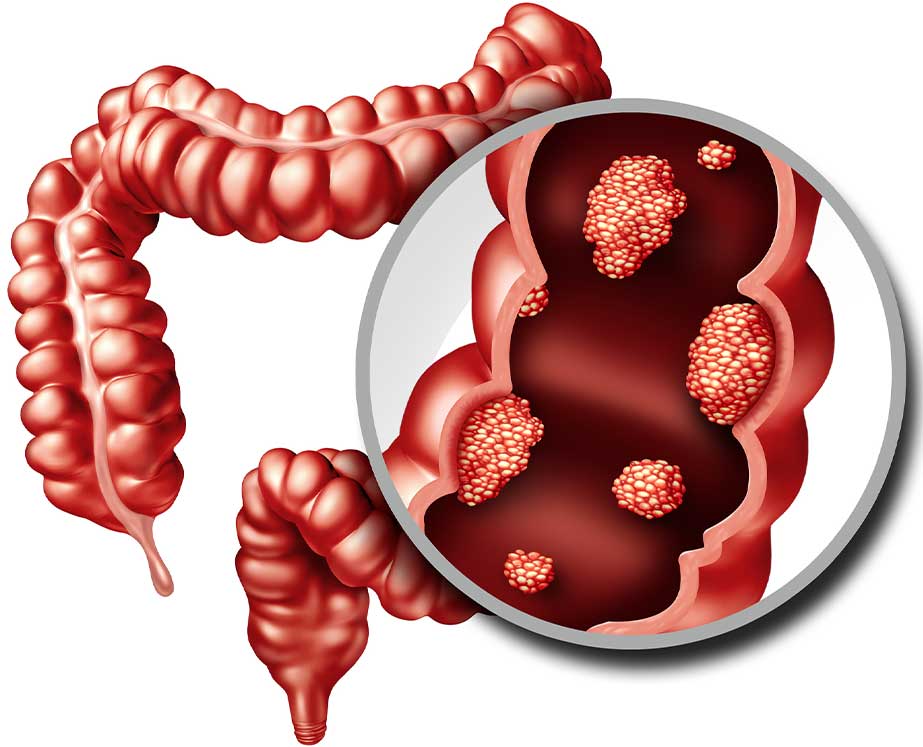Colon cancer, also sometimes called colorectal cancer, originates in the colon or large intestine.
In most cases, the patient develops polyps or small clumps of cells. While initially benign, polyps can turn cancerous.
Colon cancer is most common in people who are over 50 years old. It is more common in African-Americans than in other ethnic groups, and a susceptibility to colon cancer can run in families.
Causes
In most cases, doctors can’t identify a specific cause of colon cancer. They do know that certain inherited conditions can increase the risk of developing colon cancer. One such condition is Familial Adenomatous Polyposis (FAP) in which the patient develops thousands of polyps within their colon and rectum. Patients with untreated FAP often develop colon cancer before they’re 40 years old.
Patients with Lynch syndrome, also known as Hereditary Nonpolyposis Colorectal Cancer (HNPCC) also develop colon cancer at a comparatively young age. There are genetic tests that can detect FAP, Lynch syndrome, and other genetic disorders.
Conditions like diabetes, Crohn’s disease, and ulcerative colitis can increase the risk of colon cancer. So can smoking and drinking too much alcohol. Radiation therapy used to treat conditions in the abdominal area can also increase the risk of colon cancer.


Symptoms
Patients with colon cancer generally don’t have any symptoms during the cancer’s early and most treatable stages. That is why doctors strongly recommend that patients who are 50 or over undergo a colonoscopy to look for and remove any polyps.
The symptoms of colon cancer will depend on the location and size of the cancer. Common symptoms include a change in bowel habits that lasts for over a month. Such changes include constipation, diarrhea, or a change in the stool itself.
Other symptoms can include bloody stools, a sensation of not completely emptying the bowel, bleeding from the rectum, unplanned weight loss, fatigue, weakness, and persistent cramps, pain, or gas.
Treatment Options
Treatment for colon cancer will depend on its severity. Doctors describe colon cancer as having four stages, with Stage I being the least severe and Stage IV being the most severe. In Stage IV, the cancer has metastasized or spread to other organs.
If the cancer is very small and localized, the doctor may be able to perform some type of minimally invasive surgery to remove it. They may even be able to remove the cancer during a colonoscopy.
If the cancer is larger, the surgeon may need to perform a partial colectomy in which they remove the diseased part of the colon. In many cases, they will be able to connect the remaining colon to the bowel so the patient can defecate normally. The surgeon will also often remove neighboring lymph nodes to have them tested for cancer.
If the surgeon finds that the cancer has spread to the lymph nodes and beyond, they will recommend chemotherapy and/or radiation therapy. Other possible treatments include immunotherapy, targeted drug therapy, and a new treatment called proton beam therapy.
